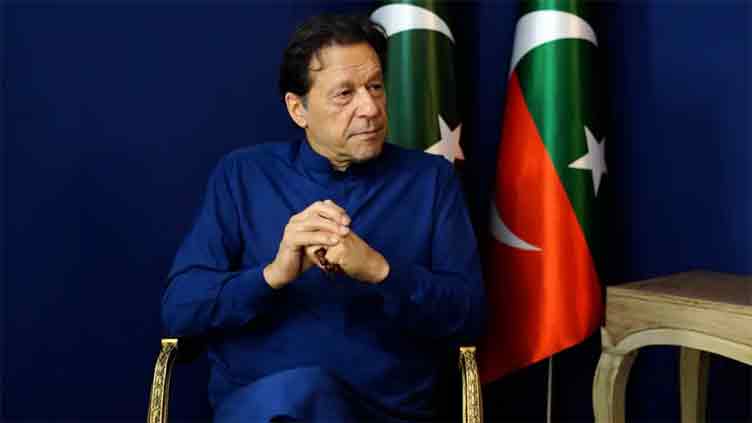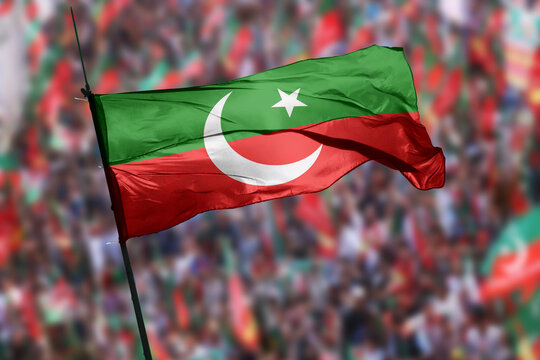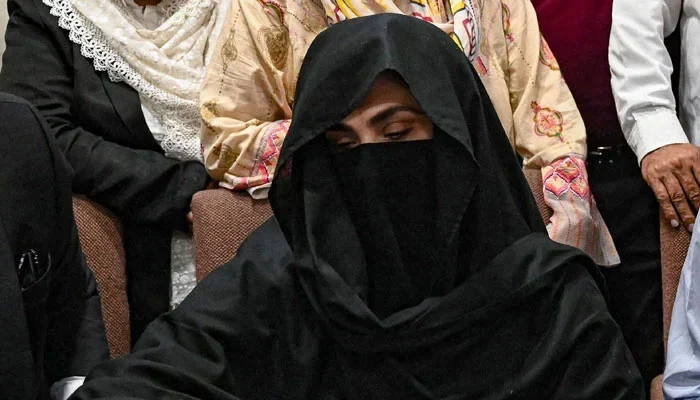Youth play a determinantal role in defining the future of nations. They play a role in the democratic process and nation-building. Development, prosperity, democracy and unity of a nation greatly depend on the youth. They have the potential and energy to combat the difficulties and find innovative ways to resolve the issues.
They steer a nation’s wellbeing and democratisation process and shape the future for the next generation. They have the willpower to face the odds.
In the case of Pakistan, they are even more important, as the country is blessed with a youth bulge. Almost two-thirds of the population is below the age of 30.
Youth are expected to play a determinant role in the upcoming elections. Data published by the Election Commission of Pakistan shows 59.10 million registered voters fall in the age bracket of 18-35. The majority of them (31.8 million) reside in Punjab, followed by Sindh (11.6 million) and KPK (10.8 million). Further, a decent number of voters are under the age of 25.
Youth are the priority of all major political parties and they are in a race to attract them. They are busy devising slogans, which can act as a pull factor. PTI is at the forefront, as it has been selling the “brand youth” for many years. It contested the last election by engaging youth. The party claims it made the youth a prominent political force.
On the other hand, the PPP is trying hard to attract voters. Bilawal Bhutto is running the campaign and presenting himself as a voice of the youth. He is assisted by his young sister. It is a smart move, as the leadership of other political parties is quite old.
PML-N joined the race after winning the election of 2013. The party devised a strategy to engage the youth and launched one of its trademark programmes — the laptop scheme — to sell its narrative to the youth. Now, they are striving hard to engage the youth.
Jamaat-e-Islami devised an entirely different strategy. It launched the “Bano Qabil Programme” to impart skills to the youth. It is an innovative programme that focuses on real-time intervention and engages youth in productive activities. It is a unique initiative that shows political parties can serve the people without power. Other parties only promise to deliver on their programmes if get elected to run the government.
MQM, once a party of young people, is losing on this front. The leadership is quite old and is not able to devise a concrete programme for the youth. The race among political parties to secure the support of youth provides an opportunity for the youth to play their role.
Unfortunately, despite such a critical role and race among political parties to secure youth support, Pakistan could not build an enabling environment for youth development. There is no second opinion youth in Pakistan are dynamic, innovative and full of energy. However, they are facing numerous challenges due to a lack of an enabling environment.
First, youth face challenges — lack of belonging, inclusion, participation, recognition and legitimacy. Youth are excluded from the decision-making and implementation process. They are treated as followers and their views are not appropriately entertained. The process starts with education where children are not allowed to choose the fields of their interest. Elders compel youth to vote for their preferred candidates based on political affiliation, caste, ethnicity, etc.
The problem is so deep-rooted even the chairman of PPP has to face it. Bilawal Bhutto is the head of PPP and the party is selling it to attract the youth. But, the chairman of PPPP says he is still young and has to learn. If Bilawal faces this dilemma, then one can imagine the seriousness of the challenges for the common youth. It is unfortunate, but a hard reality.
Second, the importance of education and skill development is well-recognised to turn youth into a positive and productive force. Nations with better education systems always thrive and lead the world. It is frustrating to note Pakistan is badly lagging behind the world in educating its youth. The country has a literacy rate of 62.3%. It also includes people who can only read and write their names. This means almost 90 million people are uneducated and 56 million fall in the category below the age of 30. Moreover, 22.8 million children are out of the education system and millions attend madrassas without formal education or skills. It is against the spirit of the Constitution.
The Constitution of Pakistan committed through articles 37-B and 25-A that the state will provide education to every child. Article 37-B states, “State shall be responsible for the eradication of illiteracy and provision of free and compulsory education up to secondary level, within minimum possible time”. Article 25-A says, “The State shall provide free and compulsory education to all children of the age of five to sixteen years in such manner as may be determined by law.
Instead of fixing the problem, the state is shedding off its responsibility by privatising education. Private education institutes are flourishing by leaps and bounds due to private sector-friendly policies. According to the Pakistan Education Statistics Report, private institutions make up 38% of the total number of educational institutions and accommodate 44% of children (22.70 million).
The quality of education is another problem. Formal education institutes, including professional universities or institutes, are not putting effort into imparting market-oriented skill training. They produce graduates with no or limited life skills. There is also a shortage of quality public professional and skill development institutions.
According to the Education Statistics Report, the private sector constitutes 56% of skill development and vocational institutes. Moreover, the government could not mobilise the business community to fulfil their obligations in the true spirit of Pakistan’s Apprenticeship Ordinance.
These factors raise the cost of acquiring skills for youth and contribute to lower human capital development. According to a recent report by the World Bank, Pakistan’s Human Capital Index only has a value of 0.41. It should be a matter of concern for our country. This indicates productivity of Pakistani human capital will be only 41%, which is very low compared to other countries.
Based on the above discussion, we can infer youth is a slogan for political parties to attract young voters. They have minimum interest in quality education and building skill development institutions by following the vision of Father of Nation.
They are not ready to take the actions needed to ensure the constitutional rights of youth, including quality education. They only launch fancy programmes like laptop schemes or youth programmes when in power. They keep talking and do nothing. It is frustrating for the youth. It also opens doors for exploitation.
Pakistan needs to understand if we do not take the required actions, the youth, being dubbed as an asset, will be turned into a liability. We live in the era of fifth-generation warfare (FGW) and youth act as a frontline. Undedicated and skill-deprived youth cannot fight this war, let alone win the war.
In conclusion, the youth will have to recognise their political strength.
They must join hands and launch political entities. These entities should be different from student unions, which the political parties have badly exploited for their gains. It will help youth enhance their bargaining power and compel the political parties to solve their problems.


 Business2 days ago
Business2 days ago
 Latest News2 days ago
Latest News2 days ago
 Latest News2 days ago
Latest News2 days ago
 Latest News2 days ago
Latest News2 days ago
 Latest News2 days ago
Latest News2 days ago
 Latest News2 days ago
Latest News2 days ago
 Latest News2 days ago
Latest News2 days ago
 Latest News2 days ago
Latest News2 days ago
























